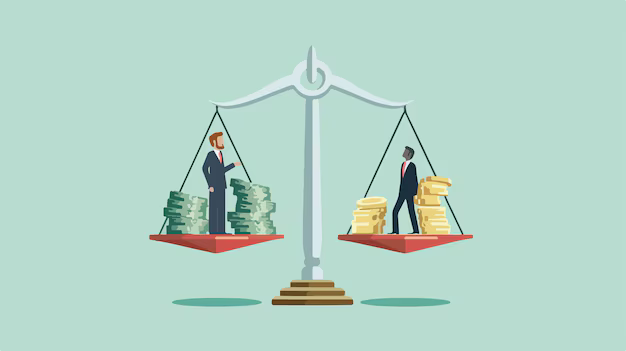What is Emotion-Focused Therapy (EFT) & It’s Goals?
Emotion-Focused Therapy (EFT) is a therapeutic approach addressing emotional experiences.

Emotion-focused Therapy (EFT therapy) is a psychotherapy based on evidence that concentrates on adult relationships and how patterns and cycles influence them.
Although this therapy approach is typically used for couples and families, people can also benefit from looking into their relationships and interpersonal patterns.
The EFT sessions aim to help couples, families, and individuals develop a more secure relationship with their family members by aiding them in moving their relationships towards a positive path by enhancing their personal feelings and beliefs.
What is Emotion-Focused Therapy (EFT)?
EFT therapy is heavily influenced by the role emotions have in our psychology. That means that EFT therapy is based on a thorough and thoughtful analysis of human experience and any changes in emotions that happen in therapy.
According to the American Psychological Association, the EFT therapy therapist will collaborate with individuals to increase their awareness and acceptance, expression use, regulation and transformation of emotions, and correct emotional experiences as part of a therapy session for individuals.
Therapists trained in EFT therapy can help clients become better aware of emotions, events, and patterns.
They can also help people better adapt their emotional responses to changing and new situations, ultimately improving their coping skills and reducing the negative effects of negative experiences.
When is EFT Therapy Used?
For families, couples, or even people, EFT therapy can benefit deal with the various mental health issues that affect us:
-
Anxiety
-
Childhood neglect or neglect
-
Depression
-
Personal problems
-
Post-traumatic stress disorder (PTSD)
Couples and distressed families could benefit from EFT therapy by learning the talent necessary to boost relations.
It is possible that a person is struggling with an underlying feeling of anger or anxiety, distrust, or a sense of betrayal within their relationship and cannot overcome a particular sensation.
It may be a good idea to benefit families struggling with a difficult situation, such as those suffering from a child's illness or disease or those trying to restore their family relationships.
While EFT therapy is mainly known as a couple intervention, it is also able to benefit those suffering from mental health problems.
It can help address anxiety, depression, and post-traumatic stress by assisting the clients to recognize their emotions as valuable sources of information, not only as emotional traumas.
What Philosophies Inform EFT Therapy
The concept was developed in the 1980s. EFT therapy is a holistic method of therapy designed to help people better understand, control, manage, understand, and communicate their feelings.
It was created as a reaction to traditional psychotherapy methods that emphasized behavioral and cognitive processes in contrast to the fundamental function of emotional change.
Since its inception, emotion-directed therapy has developed into a complete theory of practice based on the belief that changing our feelings is necessary to sustain behavioral and cognitive changes.
This method, which is embodied in the expression "I feel. Therefore I am," is heavily dependent on some of the theories listed below and fields of research:
The Theory Of Experiential And Humanistic Thinking Of Carl Rogers
In this instance, humanism is the belief that humans possess a profound capacity to grow and adapt to their needs and emotional responses.
EFT therapy embodies the fundamentals of attachment sciences, focusing less on what's "wrong" with a person and more on their personal development (non-pathologizing).
The Theory Of Attachment Developed By John Bowlby
Although theories of attachment typically focus on how infants bond with their mothers and how they relate to others surrounding their parents, EFT Therapy examines how attachment manifests itself in adult relationships.
It helps explain why it can be so difficult and frightening for someone who is hurt or betrayed by a spouse, like the ways it can be frightening for a baby to have been abandoned by his mother.
Goals of EFT Therapy
Anyone who is involved in therapy is expected to be able to recognize the emotions they experience and feel, explore, understand their meaning, and prove their handling of them.
In the EFT therapeutic session, an individual is encouraged to confront dreadful emotions to help manage and transform them, and it requires one to be able to accept these emotions as they are experienced.
EFT therapy can help families and couples go through three fundamental phases of treatment:
-
De-escalation. The purpose of the first stage is to end an individual's, couple's, or family's negative interaction pattern to help them understand and manage their relationship. The problems that arise are usually a result of anxiety and disconnection.
-
Restructuring. This is the point at which the counselor will benefit clients by discussing their concerns within the relationship. The goal is to benefit clients by turning to one another and discussing their fears by becoming more open and receptive.
-
Consolidation. The last stage in EFT therapy is to help clients understand how they came into negative patterns and then point out the ways they could change these patterns. The intention is to continue the same type of dialogue as they tackle future problems when they occur.
Finding an Emotion-Focused Therapist
An EFT Therapist is a licensed mental health professional with more knowledge and training in emotion-focused therapy.
EFT therapy is designed to help people better understand their emotions. It is crucial to remember that even those who aren't outwardly emotionally or bonded to their feelings may benefit from this method.
Therapy focused on emotions can benefit families, couples, and individuals by building stronger bonds and helping move their relationships positively by enhancing emotional resilience.
Building a lasting connection with a therapist is the first step on your journey. If you would gain from ETF therapy, think about an online therapy session. It's safe, secure, and convenient and can be incorporated into!





